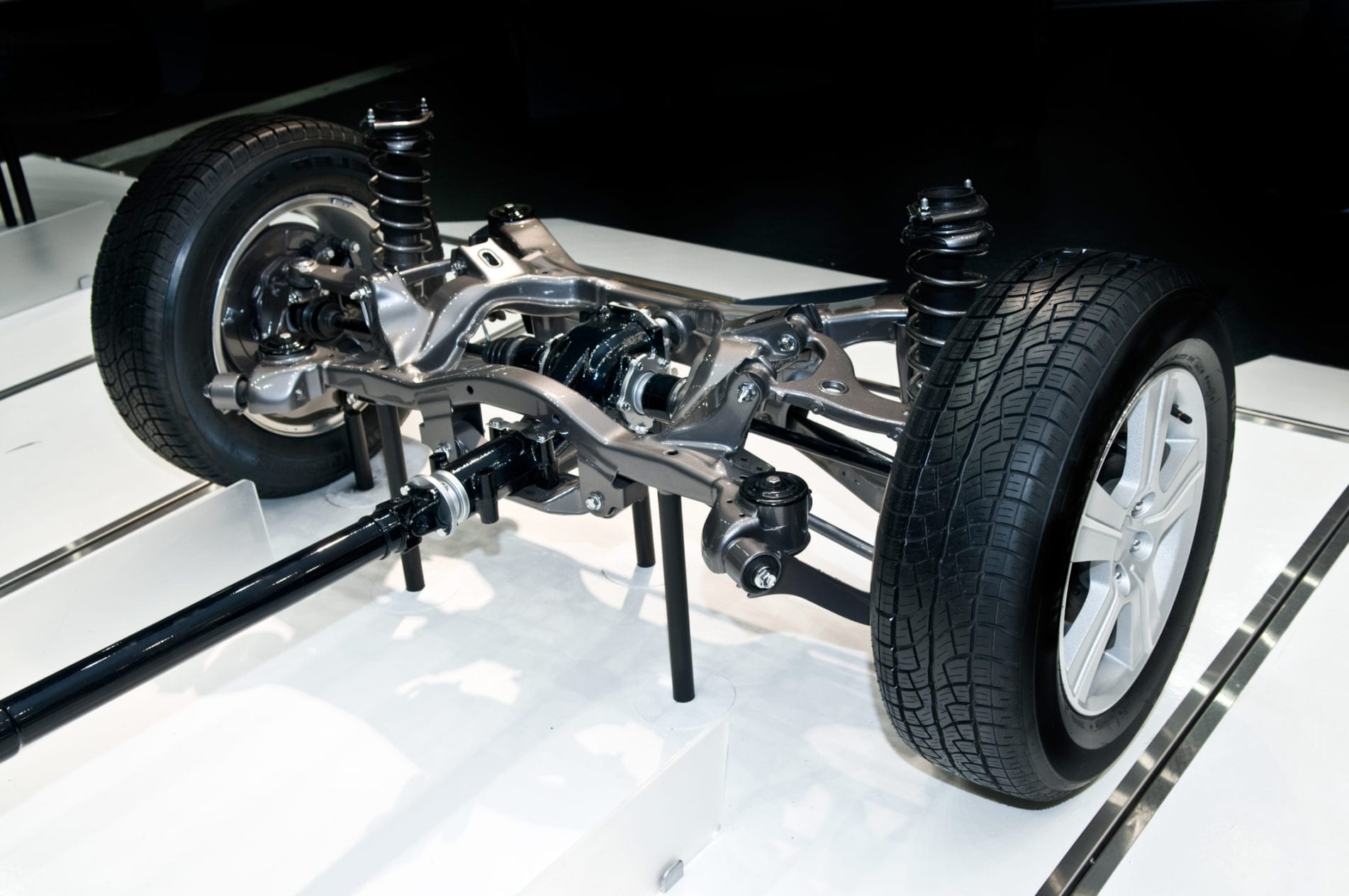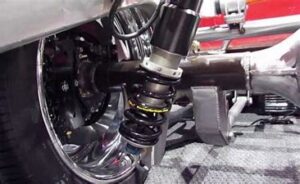Our car’s suspension works similarly to a roller coaster’s shock absorber to provide a comfortable and smooth ride. Imagine driving a car on a calm highway, yet it feels like you’re on a bouncy, wavering road. That suggests that your suspension might not be good. Consider suspension as a group of springs and shock absorbers working together to maintain the stability and comfort of your car. It keeps you in control and smooths out the bumps when it’s in good condition. However, when it’s terrible, it might get in the way.
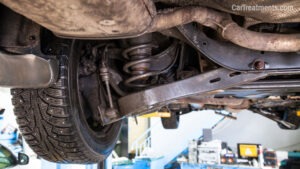
A faulty suspension can make driving more difficult and potentially cause accidents. Additionally, it can make a smooth journey into a lumpy, unpleasant experience. We’ll discuss how to tell if suspension is bad for your car in this article. We’ll tell you some simple warning signals so you don’t need to be an expert on cars. You can keep your car running smoothly and safely by being aware of these symptoms.
Table of Contents
What Is A Suspension In A Car?
The suspension of an automobile acts as a kind of magic trick, ensuring a safe and comfortable ride even on difficult or uneven roads. Imagine it as a collection of unique components and springs that function in unison to make your automobile comfortable to travel in and aid in its stability. Imagine the tyres of your car as your feet. You bend your legs somewhat when walking on a bumpy terrain, correct? Well, your car’s suspension accomplishes the same thing.
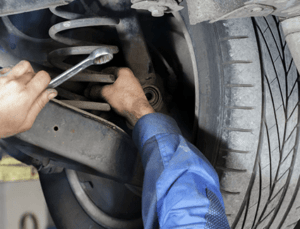
To smooth out the bumps and keep your car’s wheels firmly planted on the ground, it flexes and moves. Your automobile would feel like a chaotic rollercoaster, jumping all over the place, if it didn’t have decent suspension. Additionally, it wouldn’t handle well, making it more difficult to steer and securely stop. So the next time you’re on a smooth ride, appreciate your car’s suspension for a job well done!
How To Tell If Suspension Is Bad?
The suspension of a car acts as a shock absorber, giving you a smooth and secure ride. But occasionally, things can go wrong, and that’s awful news. Here are some straightforward warning signs that your car’s suspension may be acting up:
1. Ride Quality:
A properly functioning suspension should allow your car to travel over bumps and potholes with ease. If even mildly uneven roads make you feel like you’re riding a rollercoaster, that should raise a red signal. Perhaps your suspension isn’t working as it should.

2. Dipping And Nose-Diving:
Imagine slamming the brakes and having your car’s front end dip down as though it were attempting to touch the earth. That isn’t typical. It suggests that your shocks or struts may be damaged. Another warning indicator is when the back squats down in the other direction.

3. Tyre issues:
Inspect your tyres. Do they show wear inequitably? If you notice that a tyre is wearing out more quickly on one side than the other, the suspension may not be working properly. Your budget will suffer as a result of having to change the tyres more frequently.

4. Difficulty In Handling:
The difficulty of handling your car is mitigated by good suspension. It’s obvious that something is wrong with your suspension if you experience motion sickness while turning or observe more swaying than usual.
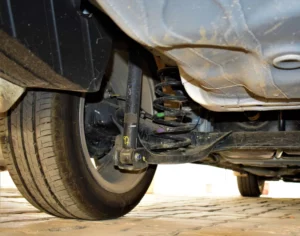
5. Sounds That Concern:
Do you occasionally hear odd noises while driving, such as squeaks, clunks, or rattles? Your automobile is signalling for assistance by making those noises. The suspension is incorrect in some way. Pay close attention and don’t ignore them.

6. Variable Height:
Park your automobile somewhere flat, then examine it. Do certain corners have lower seating than others? An automobile that is unbalanced frequently has suspension issues.

So, if you notice any of these symptoms, it’s time to see your trusted technician. Ignoring poor suspension now could result in bigger issues later and reduce your enjoyment of your rides. Maintaining the best possible condition of your suspension will result in a smoother, safer, and more enjoyable drive.
Why Does Bad Suspension In A Car Matters?
Your safety, comfort, and finances are all impacted by a car’s poor suspension, therefore it matters a lot. This is why:
1. Safety:
It’s more difficult to control your car with a worn-out suspension. On uneven roads or when you need to stop suddenly, it could bounce and wobble more. Because you can’t steer or brake well, accidents may result.

2. Comfort:
Your ride will remain smooth, like gliding on clouds, thanks to a robust suspension. Every bump and pothole becomes jarring due to poor suspension. You can soon become exhausted from it in addition to being uncomfortable.

3. Money:
In the long term, ignoring poor suspension can cost you more. Your tyres will wear down unevenly as a result, requiring more frequent replacement. Additionally, it may harm additional car components, necessitating costly repairs.

Therefore, having effective suspension is important for more than simply a comfortable ride; it also keeps you safe, comfortable, and economical.
How To Fix The Bad Suspension In A Car?
For a comfortable and secure ride, your car’s faulty suspension needs to be fixed. Here is a short instruction on how to accomplish it:
1. Determine The Issue:
Determine the cause of your suspension to start. It’s time for a checkup if it’s bouncing, makes strange noises, or causes handling problems.
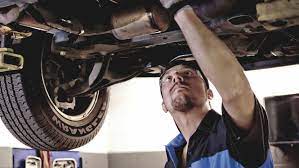
2. Speak With A Mechanic:
It’s recommended to leave suspension work to the professionals because it can be complicated. Find a trustworthy technician or auto repair facility to identify the issue.

3. Changing Worn Parts:
The mechanic might advise changing components like shocks, struts, or springs based on their evaluation. The performance of your suspension can be improved with new parts.
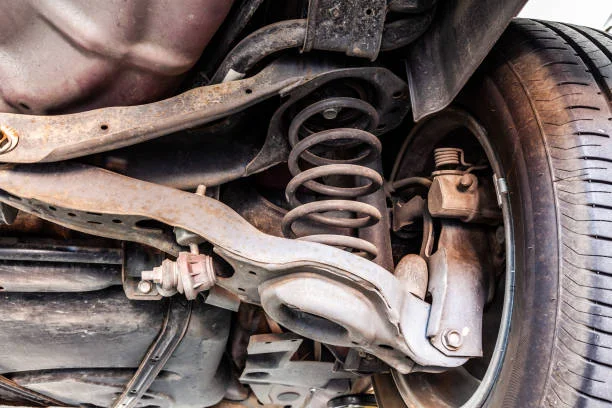
4. Balancing And Alignment:
It’s essential to obtain a wheel alignment and tyre balancing after replacing suspension elements. This guarantees straight-ahead driving and even tyre wear.
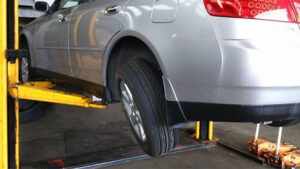
5. Continual Upkeep:
Follow the recommended maintenance schedule provided by your car’s manufacturer to avoid future suspension issues. Regular check-ups help to identify problems early.
6. Enhancements (Optional):
Consider upgrading your car’s suspension if you want to increase performance or comfort. However, for installation guidance and advice, speak with your mechanic.

7. Test Run:
After the repairs are finished, test drive your vehicle. Make sure it rides smoothly, feels stable, and has good handling.
Just keep in mind how important regular maintenance is to your safety and comfort while driving. Avoid ignoring suspension problems because they could develop into bigger issues and endanger your safety while driving. For the best suspension repair, always rely on a qualified mechanic.
Repairing Cost To Fix The Bad Suspension In A Car
Depending on what’s wrong and what kind of automobile you drive, fixing a poor suspension can cost a lot of money. The typical range for parts and labour is between $1,000 and $5,000. One shock absorber or strut replacement might run you between $150 and $300 for each corner while replacing all four could cost you over $1,000.
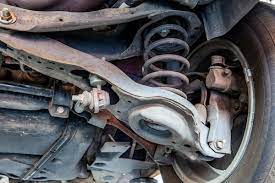
The price could increase if other parts like control arms or springs need to be fixed. Always keep safety in mind when handling suspension-related issues. Always get an estimate from a qualified mechanic to find out the precise cost based on your car’s unique requirements.
Conclusion:
Therefore, if you’re still wondering how to tell if suspension is bad in your car? Then, kindly refer to this article in detail. The suspension of your car is important for more than simply a comfortable ride; it also affects safety and the durability of your car. Knowing how to identify a damaged suspension might help you avoid future expensive repairs and keep you safe while driving.
Therefore, don’t be reluctant to speak with a mechanic if you see any of the warning indications above. A safe, comfortable, and enjoyable ride is guaranteed by a properly maintained suspension. Do not hesitate to ask if you require anything, have any questions, or require any assistance. Your car’s well-being is our first priority. Driving safely and happily!
